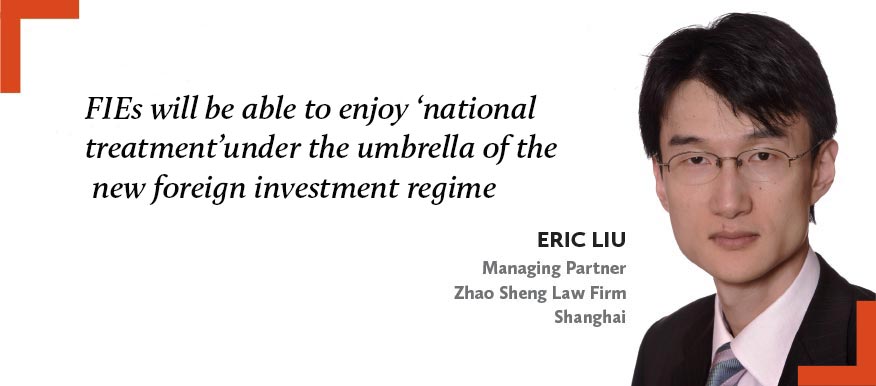The recently passed Foreign Investment Law marks China’s new regulatory framework for foreign investors. We consult some experts for their informed analysis
The National People’s Congress passed the Foreign Investment Law (FIL) on 15 March 2019, sparking the kind of interest around the world reserved for major market initiatives. The potential of this new law has not been lost on any investors, particularly those who until now have avoided China’s market for its lack of transparency and perceived bias.
The FIL replaces three old laws on foreign investment (the Law on Sino-Foreign Equity Joint Ventures, the Law on Sino-Foreign Co-operative Joint Ventures and the Law on Wholly Foreign-owned Enterprises).
Marking a unified regulatory regime for governing foreign capital coming to China, the new law is widely seen as a landmark of China further opening its market and providing stronger protection to foreigners.
We asked some legal experts about key implications of the new law and sought clarification on aspects of the law that have not as yet been sufficiently refined. The following are their observations.
China Business Law Journal (CBLJ): Compared with the previous three laws on foreign investment, what are the significant new aspects of the Foreign Investment Law?
Fan Jiannian, partner, Gide Loyrette Nouel in Shanghai: One of the main highlights of the FIL is the principle of consistency between domestic and foreign investment. You may find “equal treatment” is repeated throughout the FIL to ensure that domestic investment and foreign investment are subject to a unified set of rules. For example, article 9 provides that foreign invested enterprises (FIEs) are equally qualified for state policies that support enterprises; article 15 grants FIEs the right to equal access to the formulation of industry standards; and article 16 states that FIEs may fairly participate in government procurement projects.
In terms of corporate governance, the FIL will also cancel the specific rules only applicable to FIEs, but apply the general rules fixed by the Company Law, Partnership Law etc., to all enterprises, no matter whether they are foreign invested or domestic invested.
You must be a
subscribersubscribersubscribersubscriber
to read this content, please
subscribesubscribesubscribesubscribe
today.
For group subscribers, please click here to access.
Interested in group subscription? Please contact us.






















